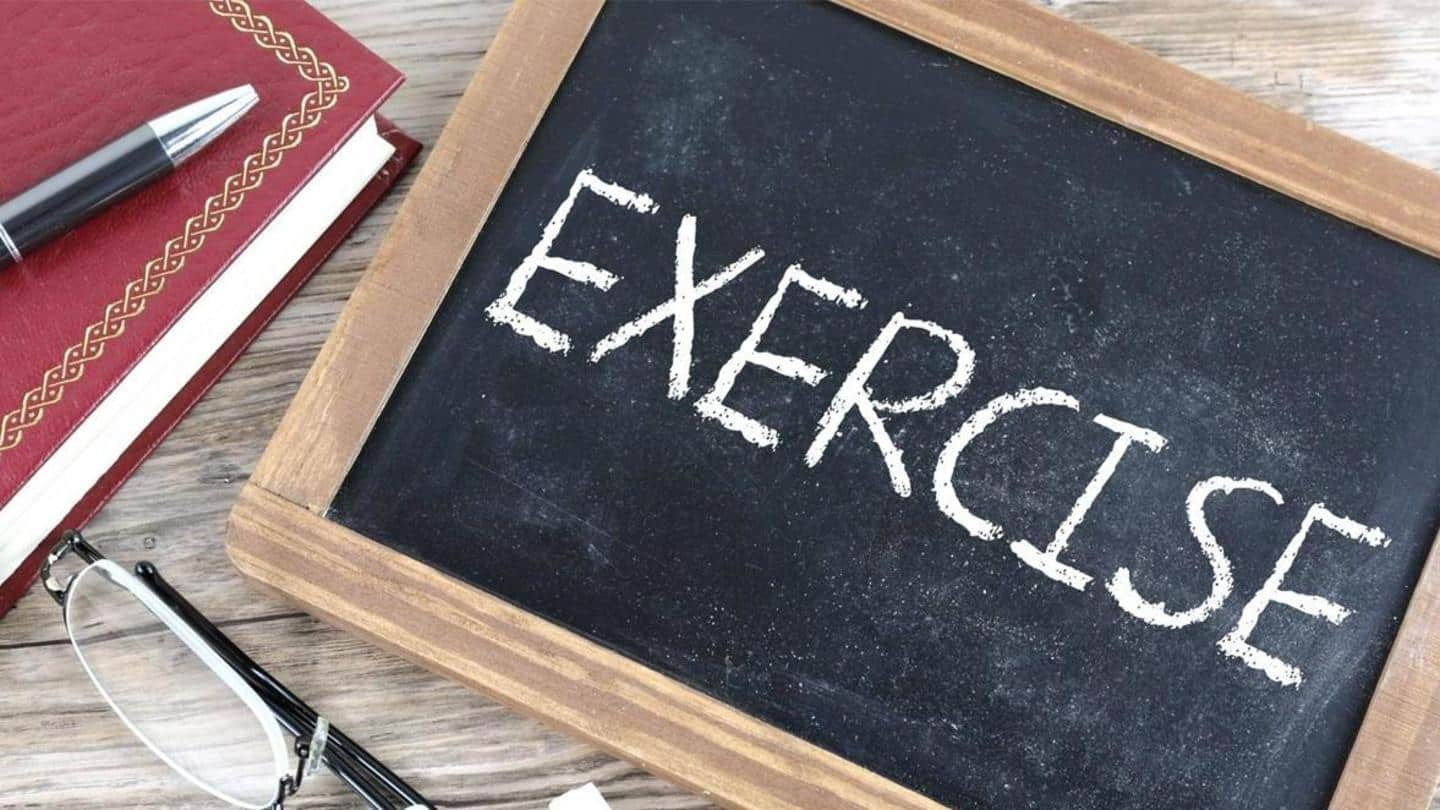
When should you exercise and when should you not?
What's the story
Hitting the gym or yoga mat has become a part of our daily existence for most of us as being fit and fine enables us to counter the stress level we experience on a daily basis. But, some might presume that one shouldn't exercise while having headaches, common cold, during periods, or/and pre-menstrual days. However, the fact is not what you think it is.
Headaches
When having headache, do the opposite... exercise!
Exercises actually reduce the frequency of headaches, and those with chronic migraines should continue with their regime to reduce the pain. Also, doing workouts when having headaches is different from getting headaches after the same, called exertional headaches. Exertional headaches are seen in a small percentage of people, and should not be believed as a rule that applies to anyone and everyone, said experts.
Quote
An expert breaks the myth about exercising and headaches
"People with exercise-induced headaches have a very rare condition... using that to tell headache patients not to exercise is a myth we don't want to propagate," said Chicago-based neurologist, Dr. Nabih Ramadan, chair of the US's National Headache Foundation (NHF) Education and Biomedical Research Committee.
Periods
Having periods shouldn't be a reason to stop exercising
Many are of the belief that during your period, you should avoid exercising. But, hitting the gym during that time reduces pain, cramps, bloating, depression, mood swings, irritability, fatigue, and nausea, as endorphins, the feel-good hormones, are released when you pump yourself. Even a 15-minute walk, twice daily, works. However, you should not do strenuous or prolonged exercises. Also, avoid poses such as inversion-type.
PMS
Exercises during pre-menstrual phase help alleviate irritating symptoms
Pre-menstrual syndrome (PMS) is a common occurrence nowadays, which has symptoms like bloating, food cravings, crankiness, and fatigue. Although energy level is low during this time, exercises help alleviate the symptoms. In fact, a study, published in the Journal of Education and Health Promotion, says exercising for three days a week, for eight weeks, had shown positive results on physical, mental, and emotional well-being.
Caution
Keep these things in mind before starting to exercise
Although physical exercise is a remedy for these problems, you should take care of certain things: -Heavy or prolonged exercises should be avoided when you have these aforementioned conditions and do relatively easy exercises. -Consult your doctor in case of increasing pains and post-exercise effects. -You can also exercise if you have a common cold, but stay hydrated, as cold anyway dries you up.